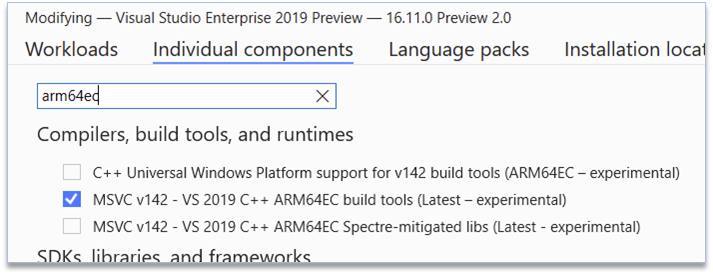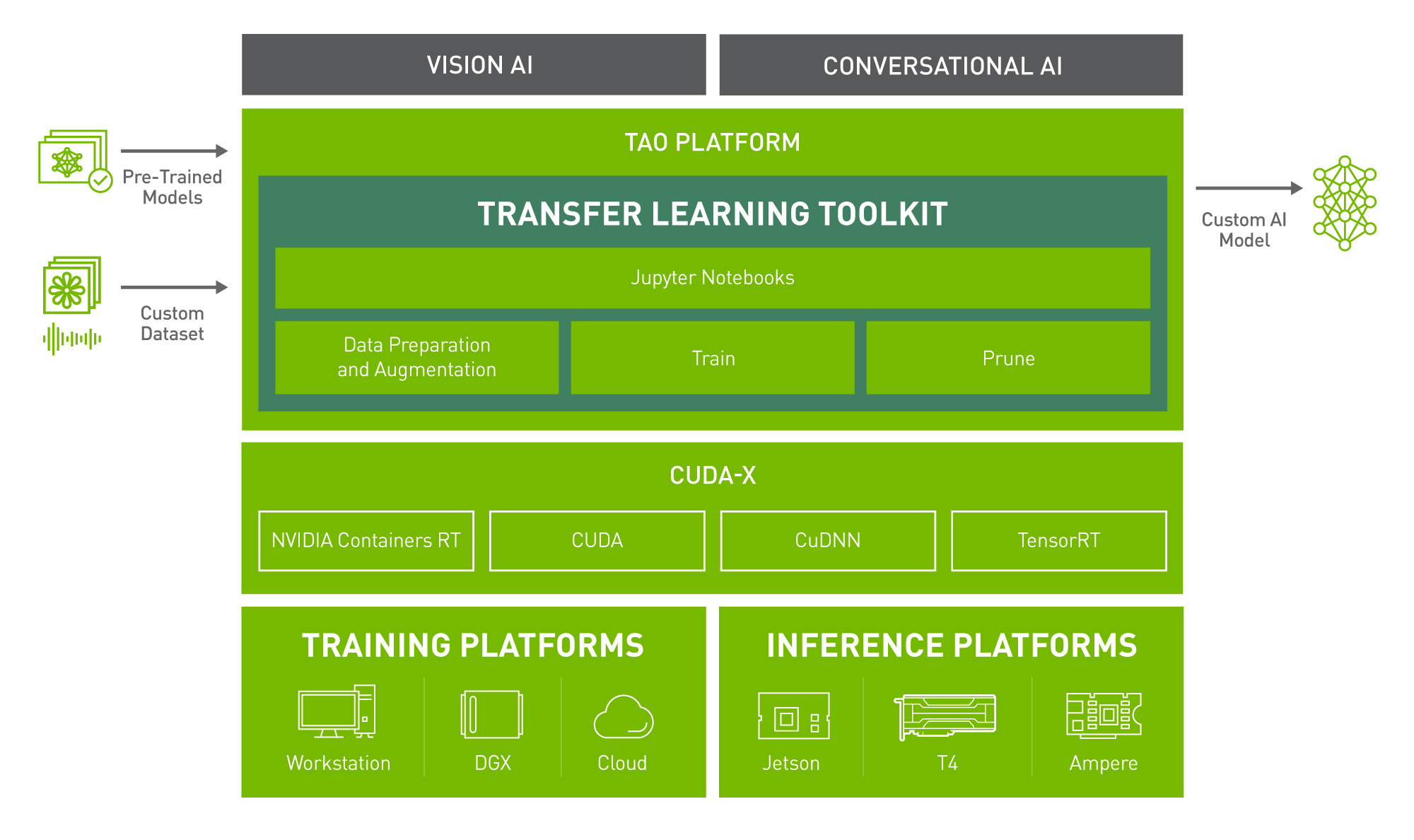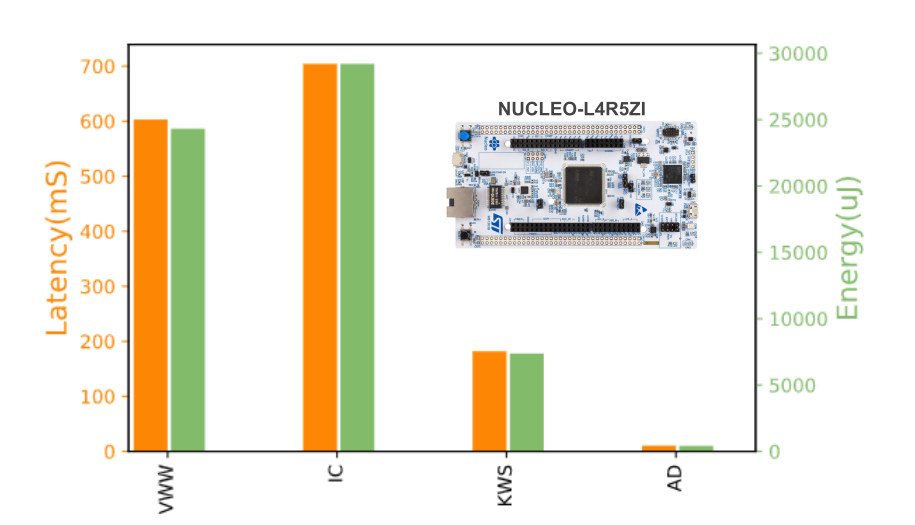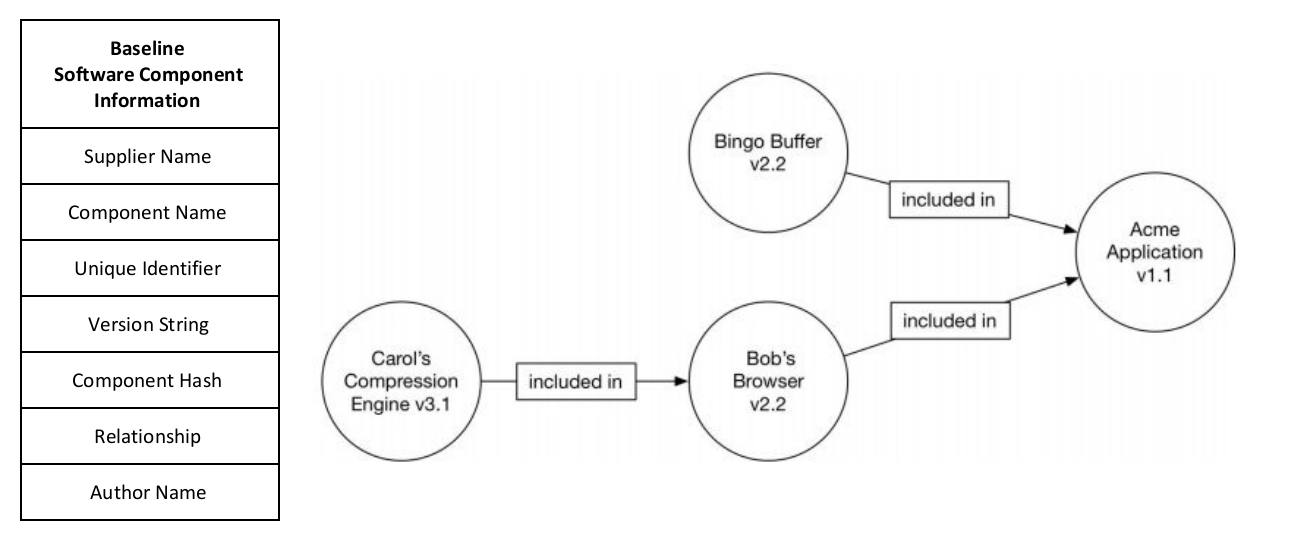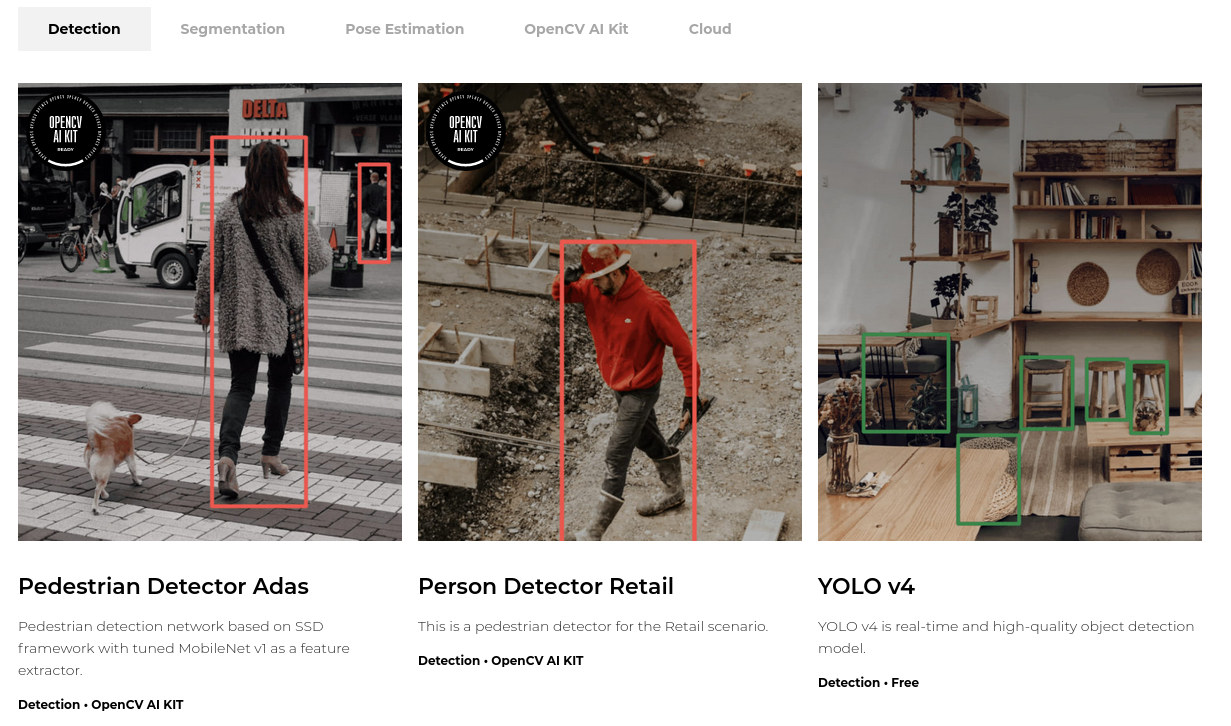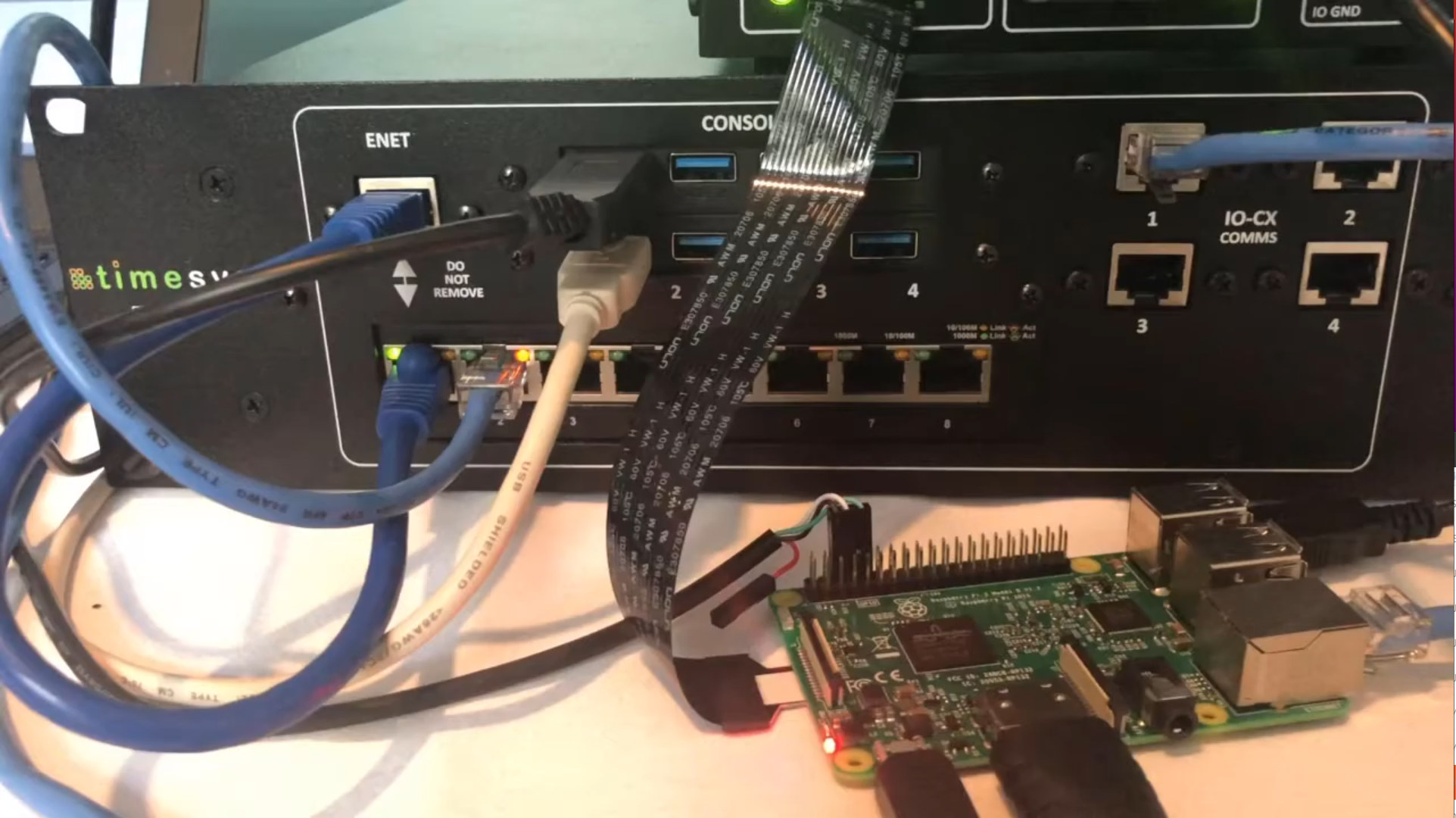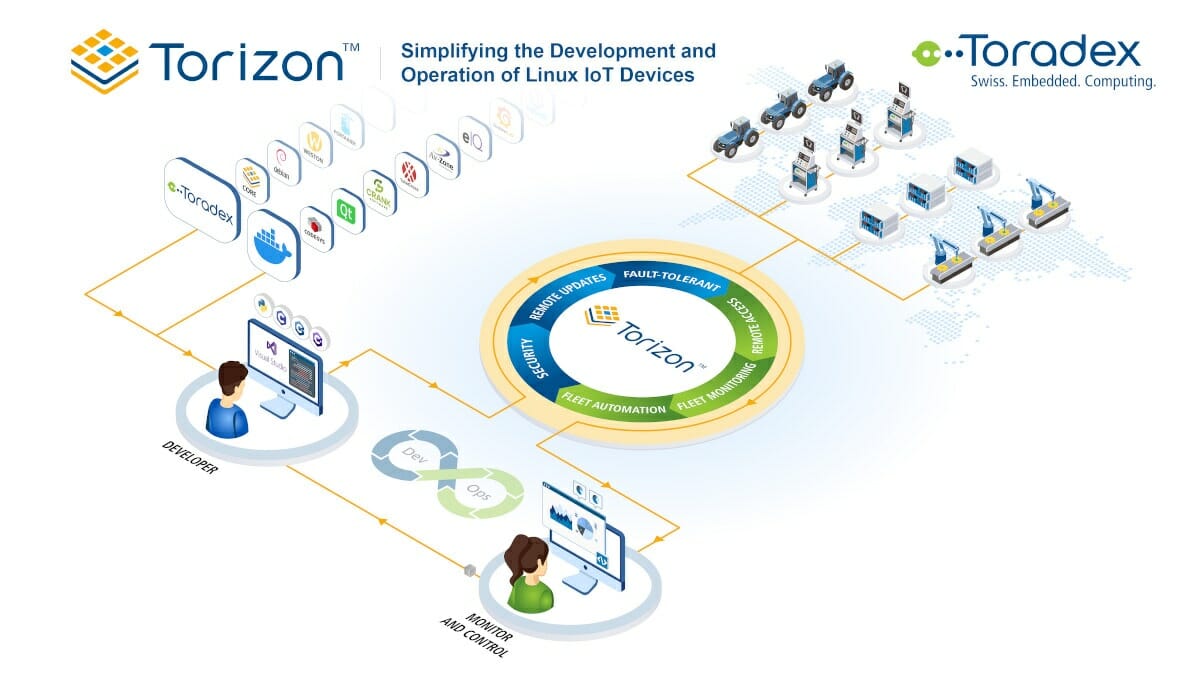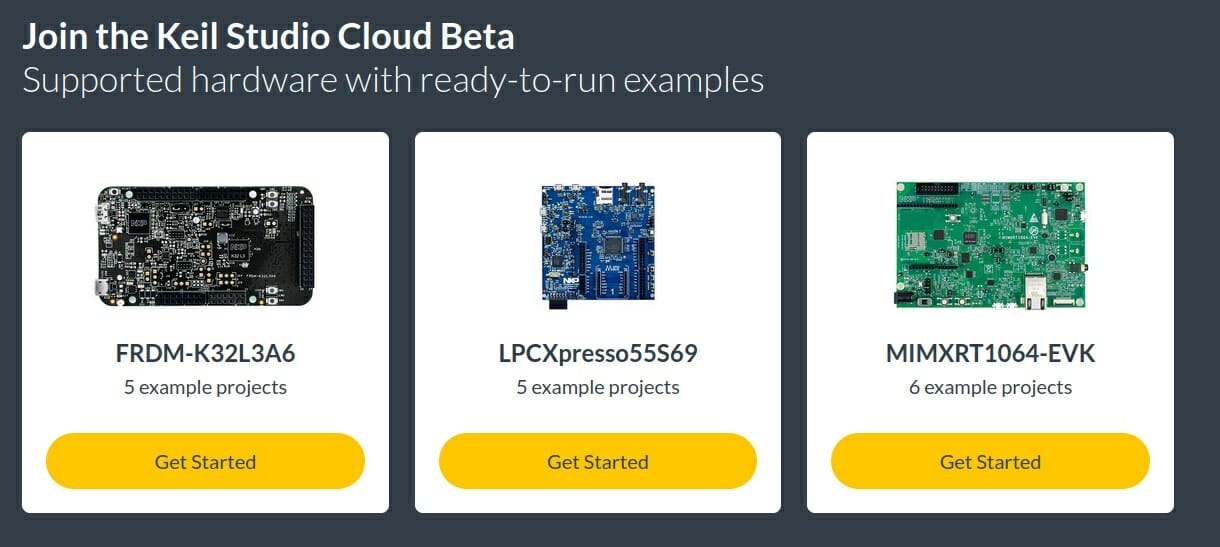Windows has been available on Arm for a few years, and while software support has progressed there have always been some limitations, and emulated x86/x64 code on Arm does not usually run as fast as native ARM32/ARM64 code. So far developers had a binary choice: run their x86/x64 app on Arm using emulation, or port the entire app to Arm, But Microsoft has now come up with a solution that mixes x64 emulation and native Arm with ARM64EC (Emulation Compatible). That means developers won’t need to port the complete app to Arm, but instead could do so step-by-step and focus on part of the code where native Arm support makes the most difference. Microsoft explains: ARM64EC is a new application binary interface (ABI) for Windows 11 on ARM that runs with native speed and is interoperable with x64. An app, process, or even a module can freely mix and match […]
NVIDIA TAO Transfer Learning Toolkit (TLT) 3.0 released with pre-trained models
NVIDIA first introduced the TAO (Train, Adapt and Optimize) framework to eases AI model training on NVIDIA GPU’s as well as NVIDIA Jetson embedded platforms last April during GTC 2021. The company has now announced the release of the third version of the TAO Transfer Learning Toolkit (TLT 3.0) together with some new pre-trained models at CVPR 2021 (2021 Conference on Computer Vision and Pattern Recognition). The newly released pre-trained models are applicable to computer vision and conversational AI, and NVIDIA claims the release provides a set of powerful productivity features that boost AI development by up to 10 times. Highlights of TAO Transfer Learning Toolkit 3.0 Various computer vision pre-trained models for Computer vision: Body Pose estimation model that supports real-time inference on edge with 9x faster inference performance than the OpenPose model. Emotion recognition Facial landmark License plate detection and recognition Heart rate estimation Gesture recognition Gaze estimation […]
Benchmarking TinyML with MLPerf Tiny Inference Benchmark
As machine learning moves to microcontrollers, something referred to as TinyML, new tools are needed to compare different solutions. We’ve previously posted some Tensorflow Lite for Microcontroller benchmarks (for single board computers), but a benchmarking tool specifically designed for AI inference on resources-constrained embedded systems could prove to be useful for consistent results and cover a wider range of use cases. That’s exactly what MLCommons, an open engineering consortium, has done with MLPerf Tiny Inference benchmarks designed to measure how quickly a trained neural network can process new data for tiny, low-power devices, and it also includes an optional power measurement option. MLPerf Tiny v0.5, the first inference benchmark suite designed for embedded systems from the organization, consists of four benchmarks: Keyword Spotting – Small vocabulary keyword spotting using DS-CNN model. Typically used in smart earbuds and virtual assistants. Visual Wake Words – Binary image classification using MobileNet. In-home security […]
Software bills of materials (SBOM) could help improve cybersecurity
There have been some widely publicized hacks in recent months including the SolarWinds hack and the Colonial pipeline cyber attack. Those two were particularly costly and disruptive, and the US government issued an executive order that lists some of the requirements to stretch cybersecurity. Since there are many attach vectors, the list of requirements is fairly long, but one that caught my eyes in the “Enhancing Software Supply Chain Security” section reads as follows: (vii) providing a purchaser a Software Bill of Materials (SBOM) for each product directly or by publishing it on a public website; Bills of materials (BoM) are commonly used for hardware design, but the idea behind a software bill of materials is to make sure outdated software libraries with known vulnerabilities are not included in a specific program. The 2021 Open Source Security and Risk Analysis (OSSRA) report exposes vulnerabilities and license conflicts found in more […]
Modelplace.AI is an app store for OpenCV compatible AI models
OpenCV open-source computer vision library is used in a wide variety of projects and products, and last year, the community also launched the OpenCV AI Kit (OAK) Myriad X-based hardware solution for computer vision. However there’s a learning curve to use the library, especially in combination with artificial intelligence models, and it can be challenging and time-consuming to newcomers. So in order to broaden the reach of the solution, OpenCV has now introduced Modelplace.AI, an app store/marketplace for AI models working with the OpenCV library. The AI model marketplace is a store and try-before-you-buy service for artificial intelligence models, many of which are certified to work with the OpenCV AI Kit. There are currently over 40 models for detection (e.g. person, pedestrian…), classification, segmentation (e.g. extraction of objects from a scene), pose estimation, people counting, text detection, tracking, and more. Right now all models are free, but developers will be […]
Timesys Embedded Board Farm enables remote access to hardware for software development & QA
When you design a new board with an international team working in multiple locations, there may only be a couple of boards available for testing, and that’s mean some members of the team may not have access to the hardware. The same problem can be true for test farms with a larger number of boards. So it would be good to have a solution to remotely access and control the hardware to speed up development. A few years ago we wrote about MuxPi board using NanoPi NEO SBC to enable remote testing of development boards, but now Timesys has come up with a more advanced solution with the Embedded Board Farm (EBF) capable of sharing multiple boards across teams spread around the world. The solution is comprised of three main components besides the target boards: The Master Server integrated with LAVA test automation framework – It handles docker images, firmware/file […]
Toradex extends Torizon to Development and Operation (DevOps) Platform for IoT Linux Devices (Sponsored)
Toradex is extending its Torizon to a full IoT Development and Operations (DevOps) Platform for Linux Devices, including free hosted remote updates, device monitoring, and fleet management solution. Torizon enables modern, iterative product development by seamlessly integrating hardware, a Linux OS, development tools, remote updates, and fleet operations. Thereby creating a scalable solution for devices requiring high reliability and security. In a paper from May 2021, Forrester Consulting finds that Traditional embedded development practices are insufficient when building smarter, digital products and that 79% of decision-makers say challenges with smart product development and delivery negatively impact their firms in delivering digital products. Torizon brings state-of-the-art product development principles to demanding applications in industries such as Industrial Automation, Healthcare, Smart City, and Transportation. Torizon allows for faster shipping of products, continuous improvements in customers’ user experience, bug fixes, and patching of security vulnerabilities in a secure and robust way. Software Developers […]
Arm introduces Open-CMSIS-Pack and Keil Studio Cloud for MCU software development
Arm has just announced two new initiatives that aim to boost the productivity embedded, IoT, ML, and MCU software developers: the Open-CMSIS-Pack project and Keil Studio Cloud. The Open-CMSIS-Pack Project The Cortex Microcontroller Software Interface Standard (CMSIS) packs have been around for years providing a vendor-independent hardware abstraction layer for microcontrollers, mostly Cortex-M based, but others too, and currently support close to 9000 different microcontrollers. I always assumed CMSIS was open-source as the source code is available in Github under an Apache 2.0 license. But apparently, not all components are, and Arm has now announced the Open-CMSIS-Pack project that will move part of CMSIS into the open project in collaboration with the Linaro IoT and Embedded Group. Linaro, Arm, and other partners like STMicro and NXP will initially focus their work on command-line tools and CMake workflows, with the ultimate goal of making the CMSIS-Pack technology into a true open […]


